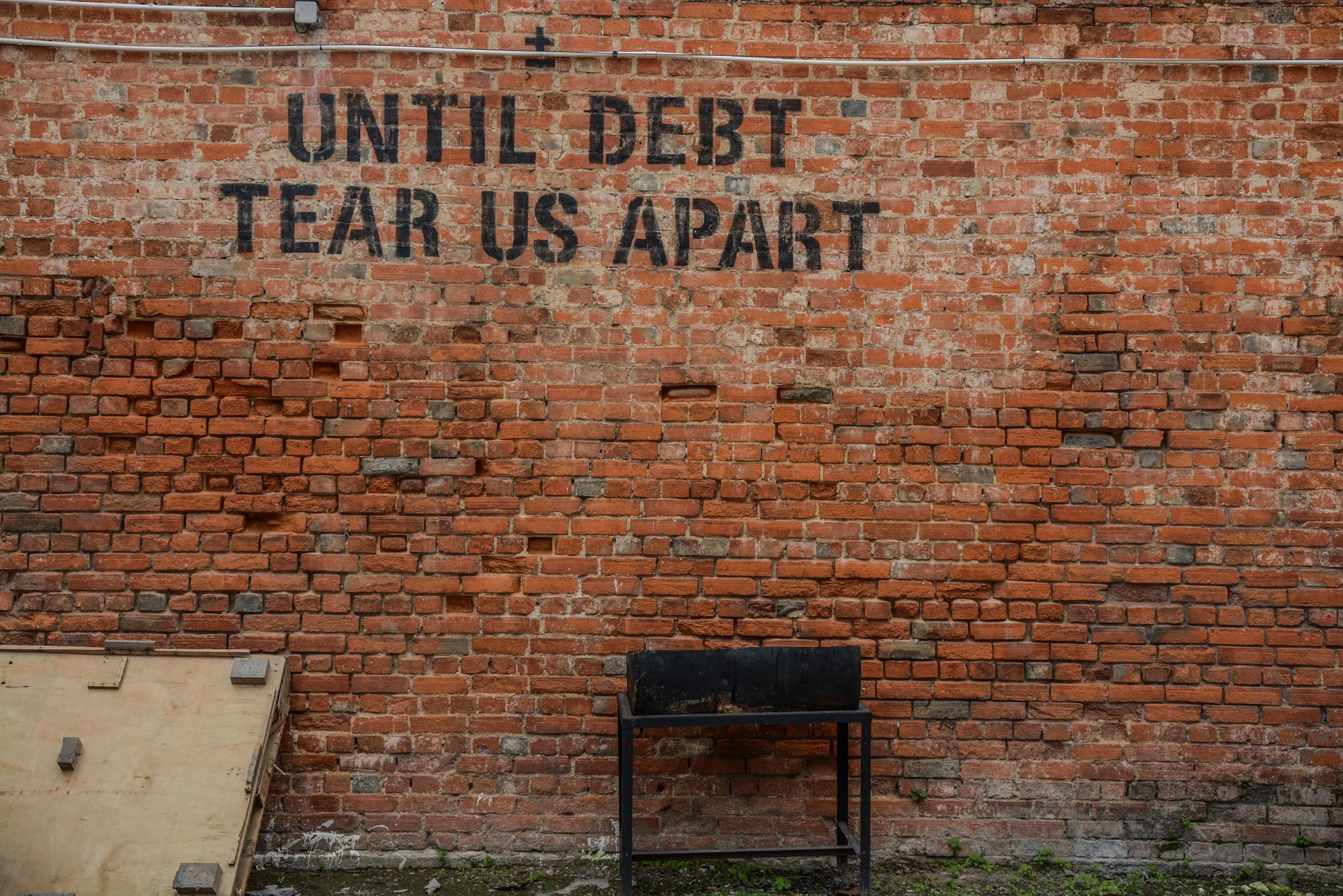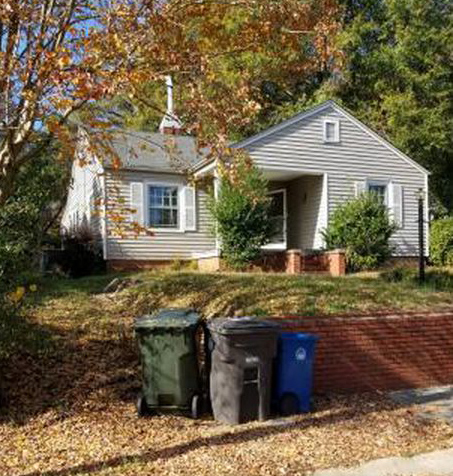DUE DILIGENCE PERIOD - WHAT TO LOOK FOR
Hey everyone! We are in the due diligence period on our new rental home on Greenland Dr. I realized today that some of you might benefit from a breakdown on how we go about this process and what it even means, so allow me to explain. Also, I wanted to update you that I will start using #HAYMOUNTHOMESGREENLAND for those of you that want to follow the updates on social media.
Have you ever bought a home? If you have, you know that it can be overwhelming because there are so many things to look when trying to determine if you have made a safe investment. You have a lot of moving parts during this process including but not limited to: two realtors, the sellers, lawyers, loan officers, inspectors, appraisers and more. There can be a lot of companies or groups involved, including home owners associations, managers, utilities, county tax offices and more. Seeing that list can be enough to make you decide to rent forever!
WHAT IS DUE DILIGENCE?
Because things can get a bit complicated with all those people involved, typically written into a contract is a due diligence period. The due diligence period is a protected time designed to allow you the chance to inspect the home and determine that you do indeed want to proceed with the contract for the home you are purchasing. During this time, you can decide to pull out of the contract if you find out something more major is wrong with the home.
Let's give you an example. Pretend you have found your dream home and have signed a contract for purchase. You receive an inspection report and it identifies that the home will need an entirely new foundation. You receive the estimate for the repair and it will be $40,000. Yikes. You might decide to change your offer price or you might decide to move on to a different house. You have inspected the home (and done your due diligence) and have determined that this home is not for you.
If you have a great realtor, he or she will likely guide you through the process of due diligence. That stated, this post can serve as a guideline for anyone looking to purchase a home. This is how I go about looking at things on a potential rental home. Disclaimer: I am not a home inspector, nor are my contractors. I don't recommend you skip the inspection if you want a more complete picture of your home). Sometimes it takes a bit of time for an inspection to happen and I get antsy....so this guide is intended to be used as an overview of what to look for while you wait.
DUE DILIGENCE CHECKLIST
When looking at a home, I don't get too bogged down in the smaller details of a home. I know that much of that can add up, but I know that a lot of small things will likely be addressed as we remodel. This is especially true of property in a rough condition. I will just add additional money into my figure planning to cover several minor things (ie, floor treads, replace and outlet, change a light fixture, etc). What I am looking for during due diligence are the "big guns" that are going to really change the matrix of my situation - aka, a deal breaker.
CRAWLSPACE
Ready to get down and dirty? It's time. With my contractor, I inspect the outside of home home, looking for cracks, instability, and any signs of decreased function. Then I get my trusted 'nasty clothes' on and head under the house. So far, I have not encountered any creatures or dead bodies under houses (though I will admit, I wonder every time...) I get under there and he points out anything of concern. I see the trusses, the floors, the support, any areas of improvement or water damage, or any signs of termites. I look for mold, moisture or entry points that are open. While we are there, we consider the electrical, plumbing and insulation under the house. I am not an expert, which is why I rely on my contractors (who I love!!). I go with them under the house so I can visualize what really needs to happen. If you want to understand, you need to see. If there is any suspected mold, I call my water mitigation people for testing. If there is any question of termite damage, I call my pest people for their opinion.
HEATING AND AIR "HVAC" unit
Here is another area for an expert. I call in my HVAC guy in an have him inspect the unit. We test the functionality and note the age of the unit. Most units can be considered "good" for 15 years, "might consider planning replacement" at 15-20 years. After that point, you are lucky to have it going but better be sure that you plan for an upcoming replacement soon. I also have him look at duct work and any additional venting that I might have to change in the house.
ELECTRICAL
I look at the electrical panel. If that has been updated, you'll know that you are at least in decent shape. If anything in your plan is considering space addition or renovation, you might need to adjust the panel size and that can cost a bit of money. Additionally, I find that the panels are often in less than desirable locations. Sometimes I am considering moving them or flipping them to a new wall to make my renovations. I want to be sure that can be done, and at what cost.
FIREPLACE
Look for damage and functionality. Has it been cared for? Is it safe?
ROOF
Don't miss this. You'll want to have a roofer estimate the age of the roof and condition. Fortunately, my contractor also does roofs, so he is easily available. Flat shingles have about a 20 year life, architectural shingles about 30, metal Roofs about 50, and asbestos roofs can last 80 years. You'll want to see what you might be getting into with the roof as far as any repairs or replacements.
WINDOWS
These can be costly. Look at the seals, seams and any frame damage that might have been caused by water entry. If they are painted shut, old or dysfunctional, you might need to consider replacement. This can get pricey. Know what you are in for.
SIDING
Check condition and type. Look for damaged sections that might need repair. Look for any wood rot as well.
PLUMBING
Check that the water works, toilets flush, fixtures turn on and off. Simple, but easy. If you see a back up, you might want to investigate that. I simply call my plumber and have him go after it and let me know what the issues might be. In older homes, I am often relocating things like washers or hot water heaters. That is the time to ask the plumber about my plans to make sure they are feasible.
LANDSCAPE/OUTDOOR
Don't overlook this. Cracked patios, broken steps, decks, walkways, pools, garages, sheds and other buildings can rather quickly add up in additional costs. Note any issues you see and be sure you don't have any huge corrections to make. Also note any yard maintenance issues that might need to be addressed. Additionally, you will need to look at the trees - do they hit the house? Do they need trimming? Are any of them at risk for being too close to the house? Take a good inventory of what needs to be done.
ASSESSMENT OF FINDINGS
Now it is time to look at everything and determine if the amount of repair or changes to the property that you have in mind is going to fit in your budget and keep the home in the end price range that you anticipated. If the repair list is very long, you might consider asking the sellers to make repairs - or adjust the asking price. If it isn't too high or you are getting the house at a good deal, you are doing well. If the house is sold 'as-is', that means there are no repairs by the seller and you'll be stuck with all of them!
HOW DOES OUR NEW GREENLAND HOME STACK UP?
Great question. We are ending our due diligence period soon. Here are some things that I have called in my "people" for and this is the plan:
1. CRAWLSPACE: Floors have settled which is not uncommon in the historic homes and in the south's sandy and clay based soil. I wanted to be sure that things were not unstable underneath the house. Fortunately, we are in luck. There has already been work underneath the house to reinforce the issue. Perfect. Some of the floors will need repair on the inside of the home, but that is better than all the joists and foundation under the house too!
2. HVAC: HVAC system is 30 years old and somehow STILL working. It's good...for now anyway, but we know a new one is on the horizon. Might have to move a few floor duct vents. No biggie.
3. ELECTRICAL: Kitchen needs a new layout and possibly need to move an electrical panel. I am going to created a laundry area and that will also move the water heater and washing machine. My contractor, plumber, and electrician are all on board for changes.
4. FIREPLACE: Fireplace has a lot of settling, but is stable. I don't think it is safe for use - still need to find that out, but we usually don't allow them to be used in our leases due to safety.
5. ROOF: We will replace the roof. Too many small areas need repair. The roof is not that big on this 1000 square foot house, so we might as well replace it all.
6. WINDOWS: It's time for new windows. The original windows are lead weight windows, which are harder to remove. This will be a J.O.B. Sorry contractors :(
7. SIDING: Good condition with minor issues. We'll probably leave it alone but make sure it gets a REALLY good bath! Some areas of damage will need to be replaced.
8. PLUMBING: Ours sound for the most part, some newer updates, some are older, so we might need to make a few changes here and there. The bathroom is a gut job. The floor has water damage, but fortunately the joists below are still solid (THANK YOU OLD WOOD!!!) and there doesn't appear to be any mold growth or anything.
9. EXTERIOR: Still awaiting an estimate from my tree guy about trimming several trees and removing some dead trees. This won't be anything too intense. Mostly, just clean up here!
“Diligence is the mother of good fortune”
We are moving forward with our new home and will continue to plan on closing in a week. There are repairs to make, but we knew that when making our offer.
What do you think? Have you ever had to pull out of a home purchase during the due diligence period? What was your deal breaker? I'd love to know!
- Casey





